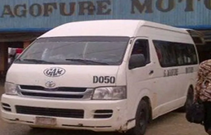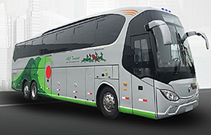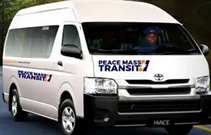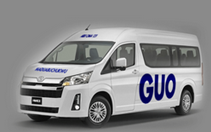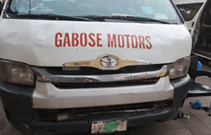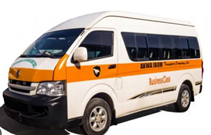Traveling across Nigeria will give you a memorable experience because of our vast culture, unimaginable landscape, different survival patterns you will never know existed. While your enjoying this beautiful places its important you follow this 10 Safety Tips When Traveling Within Nigeria.
Although Nigeria has all this beautiful places but there are still insecurity in almost all region of the country, but the good news is that a lot of people are still traveling safely despite all the insecurity news been spread on news. We can assure you that interstate travel is very much save and its important to put out some interstate security tips for all our beloved users.
Safety Tips to follow when traveling in Nigeria
1. Plan Ahead and Stay Informed
Always plan ahead of time before traveling to any destination, if your not familiar with where your traveling to make sure you make a little research about the current situation of that area before you embark on any journey. Stay updated on local news for any developments that might affect your travel plans. Nigeria’s climate varies; make sure you are prepared for the weather in your destination.
A simple lack of awareness can lead to avoidable risks. For example, planning a business trip to Maiduguri during a local curfew or national protest might land you in trouble.
If your journey will enter night make sure you have someone your calling and telling the situation of your journey. Call a friend or relative and tell them your whereabouts at any given time.
2. Always go with Fully charged phone and power bank
Whenever you traveling withing Nigeria is important to go with a fully charged phone and bank in-case of eventuality. We all know that electric power are not steady in this country and to keep you phone on you have to prepare for it whether insecurity or not. Also having a phone with keep you updated about your traveling information. You can use google map to keep track of journey and be reachable at any given time.
3. Use a reputable transport company
Always choose a registered transport company: Opt for well-known bus companies or ride-hailing apps like Bolt and Uber, especially in urban areas.
If your going for interstate journey we have bookings for many reputable transport companies in Nigeria. Just make sure you book from a well known company. Companies like Guo motors, God is good motors and even Libra motors are top player in Nigeria transport industry, so make sure you use any one of them.
For example
Chika, a student from Ibadan, boarded an unbranded minibus because it was cheaper. Halfway through the journey, the bus broke down in an unsafe area. She was stranded for hours and lost her phone during the confusion. This are thing your should avoid.
Avoid Night Travel: Traveling after dark can be risky due to road conditions and security concerns.
Verify Vehicle Condition: Ensure the vehicle is in good condition and the driver is licensed.
4. Secure Your Belongings
When traveling within Nigeria always carry your luggage’s in away that seems secured, Carry Minimal Valuables: Only take what’s necessary and avoid displaying expensive items in public. Use Anti-Theft Bags: Consider using bags designed to deter pickpockets and never allow anyone who claim to assist you carry your most valuable bag. Keep Essentials Close: Your important documents and money should be kept in a secure, easily accessible place.
Theft isn’t always obvious. Sometimes, it’s your seatmate, bus attendant, or someone who saw you counting cash in public.
What You Should Do:
- Use waist bags or travel pouches worn inside your shirt.
- Split your money. Keep a small amount in your pocket, the rest inside a hidden compartment.
- Use password locks for bags.
- Label your bags clearly. Make them easy to identify at luggage points.
5. Avoid High-Risk Areas
If you drop in any place your not familiar with make sure you Stay in Well-Populated Areas: Avoid secluded places, especially after dark. Always walk in two’s, don’t allow yourself to be single out. Also be Be Cautious in Crowded Spaces: Markets and public transport hubs can be hotspots for petty crimes. Whenever your in a crowded place be cautious of your belongings. Monitor Local Advisories: Heed warnings about areas with recent unrest or high crime rates.
6. Stay Connected
Traveling without communication in Nigeria is risky. A dropped signal, dead battery, or lost phone can quickly escalate into a scary situation. Like i mentioned earlier always call or text your closest person about your whereabouts.
What You Should Do:
- Always carry a power bank
- Buy a local SIM if you’re from outside Nigeria
- Top up before traveling. You don’t want to run out of data or airtime mid-trip.
- Turn on location sharing on your phone.
Real Scenario:
Amaka got stuck in Ore when her bus developed issues. Luckily, her brother could track her live location and send help after her line was unreachable.
- Carry 2 phones if possible
- Don’t rely on vehicle charging ports
- Always write down important contacts physically too
7. Be Health-Conscious
Travel stress can affect your immune system. And in some areas, medical help might be far away.
What You Should Do:
- Avoid raw water and roadside sachet drinks
- Take bottled water with you
- **Always carry:
- Paracetamol
- Antiseptic wipes
- Malaria tablets
- ORS (Oral Rehydration Salts)
Food Tips:
- Stick to boiled or grilled meals.
- Avoid salads or uncooked sauces from unknown restaurants.
- If you must eat at a bus park, go where you see many people buying—a good sign of trust.
- Hydrate regularly
- Eat light before a long trip
- Pack meds before you go
For more information about food when traveling check this guild on Healthy Eating on the Go.
8. Stay Vigilant Against Scams
Scammers are getting smarter. You might meet one disguised as a kind helper, fake travel agent, or even a fellow passenger. Always mind your business and never solicit to help any unknown stranger.
Common Scams:
- “Let me help you buy ticket, the line is too long.”
- “You dropped this” then plant stolen goods on you.
- Fake police or uniform men asking for your phone or ID.
What You Should Do:
- Politely say NO to unsolicited help
- Only deal with staff wearing ID cards
- If stopped by security agents, ask to see ID and remain calm
- Stay sharp. Don’t trust too easily.
- Report suspicious activity.
- Don’t give out your phone or bank info to strangers.
9. Respect Local Customs and Laws
You don’t want to accidentally break a law or offend a community, especially in sensitive regions. Stay humble and learn how to great people withing your vicinity.
What You Should Do:
- Learn basic greetings in local dialects. People appreciate effort.
- Ask before taking photos of buildings, markets, or individuals.
- Avoid controversial conversations—especially about politics or religion.
Clothing Tip:
- In the North, wear longer clothes.
- In coastal areas, dress smart-casual.
- Always carry a scarf or light shawl (useful in religious places or cold buses).
- Greet respectfully (especially elders)
- Ask before snapping
- Dress modestly where needed
10. Prepare for Emergencies
If anything happens a breakdown, robbery, or medical emergency being prepared can save your life. So you have to go with cash. Many Nigerians prefer cash for transport and food. But carrying too much is unsafe.
What You Should Do:
- Know the nearest hospital and police station on your route
- Register emergency contacts with your transport company
- Carry ID cards and insurance details
- Use apps like Echo112 or First Aid by Red Cross
Emergency Numbers:
- Nigeria Police: 112 or 199
- FRSC (Road Safety): 122
- Ambulance: 112
- Fire: 112
Reminder:
- Don’t panic
- Call someone immediately
- Seek help fast and report officially
Final Words: Stay Smart, Stay Safe
Traveling within Nigeria can be joyful and inspiring. You’ll meet warm people, taste amazing food, and witness breathtaking landscapes. But your experience can only be complete if you stay safe.
Let these 10 safety tips be your travel companion.
Read them again before each journey. Share them with friends and family. And always, always trust your instincts.
Because in Nigeria, just like anywhere else…
“Better to be safe than sorry.
